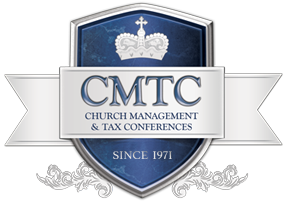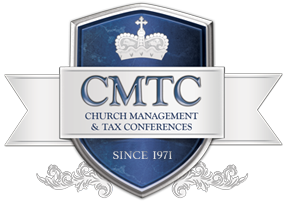Church’s Responsibility for Donor Giving Statements
Tax season is upon us and many Church Members are preparing to file their individual tax returns. A substantial item for many will be the donations made to their local Church. Donations given to a Church in the form of cash, check, credit card, money order, and online giving are deductible, but the Church is not relieved from its responsibility to properly document those gifts and provide their donors a Giving Statement that will pass the scrutiny of the Internal Revenue Service.
Only providing the donor with a statement of total giving is not acceptable in many instances. Therefore it is vital that Church Treasurers and Clerks do due diligence to ensure that everything given has been properly recorded and necessary documentation is furnished to the donor. This is a small way in which the Church can say, “Thank you for your support.”
Let’s take a moment and look at some dos and don’ts of donor transactions.
Do Not Assign Cash Values
Throughout the calendar year many Churches receive non-cash gifts in the form of goods and/or services. Whether someone is donating a van or their labor, most donations are appreciated by a Church and its Pastor.
Unfortunately this can pose many major problems for donors and the Church. When goods or services are donated, many donees desire some form of giving statement as proof of the donation. They present a receipt of purchase or provide the church with a value, and expect the donation certificate to list an amount of the donation. This is strictly prohibited under section 170(f)(8)(B)(i) of the Internal Revenue Code. The Church may write a letter of written acknowledgement of the gift or services, but no dollar value may be assigned by the Church. Doing so may result in civil and/or criminal penalties.
In the event the goods donated exceed $500 value, a tax payer must file Form 8283 with his or her return if they expect the donation to be accepted as tax deductible by the IRS.
Keep Track of any Amount that Resulted in the Receipt of Tangible Goods.
When the receipt of tangible goods and or services is connected to a monetary donation, that donation is only allowed for any amounts that exceed the fair market value of goods or services received by the donor. We see daily examples of this on Christian Television. The pitch usually sounds something like this: “Today we are sending our partners ‘XYZ’ book for any donation over $50.00.” The fair market value of the book may be $10. Therefore the Christian Network must report to the donor that only $40 of their gift is tax deductible.
Small Churches engage in this practice every Sunday. A recording of the Pastor’s message is sold for $10. However, the cost of production of the sermon CD may only be three dollars. Only the balance (seven dollars difference between $10 donation and three dollar production costs of the CD) qualifies as a tax deductible gift.
When the amounts of the donations are listed on the donor’s annual Giving Statement, make sure that the statement reflects how much of that gift is for tangible property.
If the tangible property received by the donor is $75 or more, a separate statement must be prepared for that particular transaction if a tax write off is to be recognized.
The $250 Rule
The donor’s Giving Statement may not record totals only, when any single donations are $250 or more. These single $250 or more donations must be listed individually and must be accompanied by a statement from the donee stating that “no goods or services were provided except for intangible religious services.” Failure to do this places extra burden upon your generous members to scurry through bank and credit card statements to satisfy the IRS in the event of an audit.
Donors are more apt to continue their generosity when the Church helps ease any burden of proof in the event of an audit.
This and Much More
These are only a few of the items governing a Church’s responsibility for properly reporting donations. These and many more are taught almost daily at our Church Management and Tax Conferences across America.
By registering for a conference in a city nearest you, you guarantee that you will be made aware of all the latest tax updates required of Churches and non-profit ministries. Do Not Delay! Visit us at www.cmtc.org or call 800-344-0076 to register for The Conference that will change how your Church manages its books and records. You will be glad you did.
At Chitwood & Chitwood it is “A Ministry – Not A Job!”

